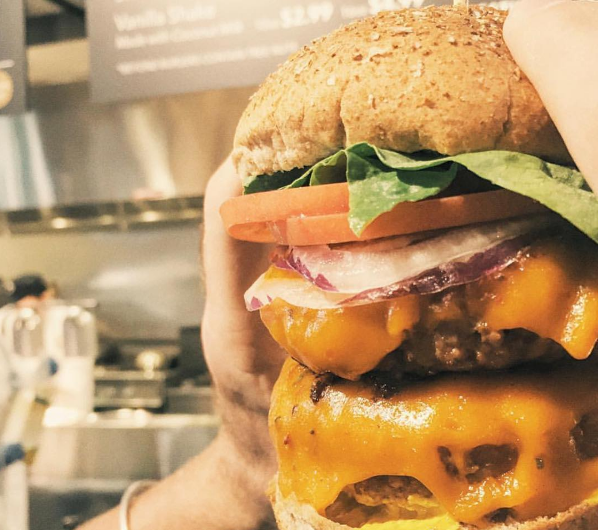Tyson Foods Invests In 'Beyond Meat's' Veggie Burgers; Plus 3 Things To Know About Vegan Meat

A Silicon Valley startup called Beyond Meat, best known for creating the "Beyond Burger," a vegan burger that "bleeds" beet juice, just got a boost to its business with the news that Tyson Foods, the world's largest chicken producer, bought a stake in the vegan company.
Vegan meat is becoming more and more popular, and consumers are begining to realize it can be a tasty alternative to regular burgers and chicken. Here are some facts about Beyond Burger and the vegan meat trend.
Beyond Burger: Ingredients
In the Beyond Burger, the primary source of protein comes from peas. The product contains 20 grams of plant protein per serving, with no GMOs, soy, or gluten, making it 100 percent vegan. Pea protein has a high lysine content, which cannot be made in the body, and must therefore be consumed through diet. Lysine helps absorb calcium and is essential in the formation of collagen — the building block of connective tissue such as bones, cartilage, skin, and tendons.
Beyond Meat CEO Ethan Brown wants to emphasize he's not telling people not to eat meat. “The way I think about it is to not build a business on telling people not to eat meat, but to build a business around challenging what people’s perception of meat is," he told the Animal Charity Evaluators, in an interview.
Other companies like Hormel Foods Corporation — who makes Spam — have also joined the effort to cash in on the meatless meat trend. In May, the company purchased Justin’s, an organic, vegetarian nut butter company based in Boulder, Colo.
The Animal Industry And Superbugs
The switch to plant-based foods is felt by the animal industry, which has been under public scrutiny due to conditions of raising farm animals, and its environmental impact. Research has shown the overuse of antibiotics in food animals is a threat to public health. Approximately 80 percent of antibiotics sold in the U.S. are used in meat and poultry production. Most of it is used on healthy animals to promote growth, or prevent disease in crowded and, or unsanitary conditions.
Vegan Meat: How To Fake It
Here’s what you need to know:
1) Vegan meat is free from animal-derived products, but intends to replicate the texture and taste of meat. It’s commonly made from plant-based sources like soy and wheat gluten. The most common forms of soy used as meat substitutes are firm tofu and tempeh.
2) Other meatless meat products are made from wheat gluten. Wheat has less protein than soy, but it’s texture is easier to transform into “chewy meat.” It is also low in fat.
3) Some products, like Quorn's meat alternatives, are made from a double-fermentation process that creates a fungus similar to animal protein.
Published by Medicaldaily.com



























